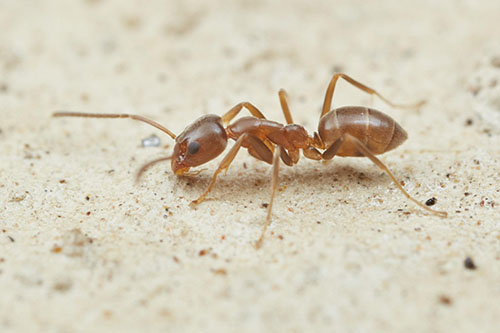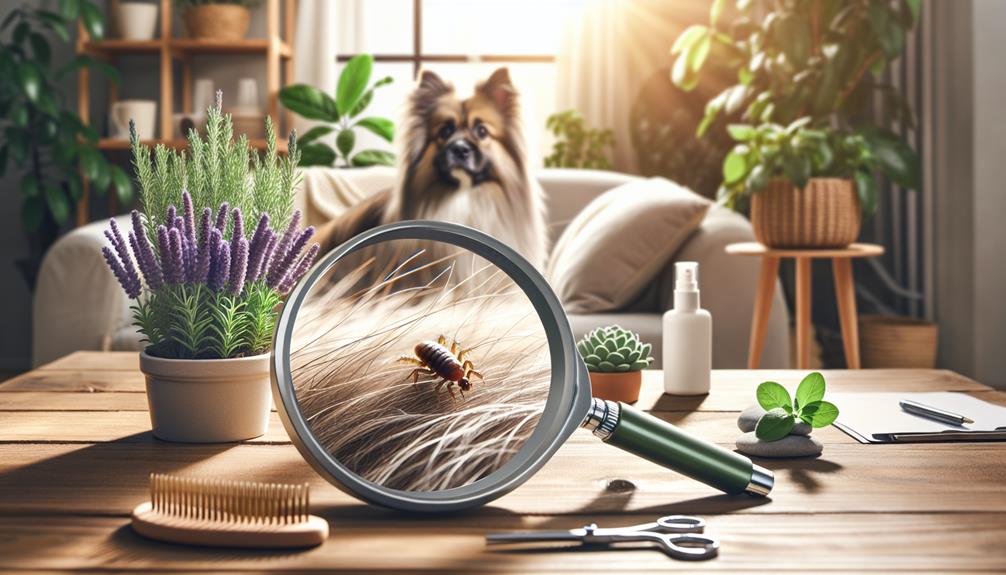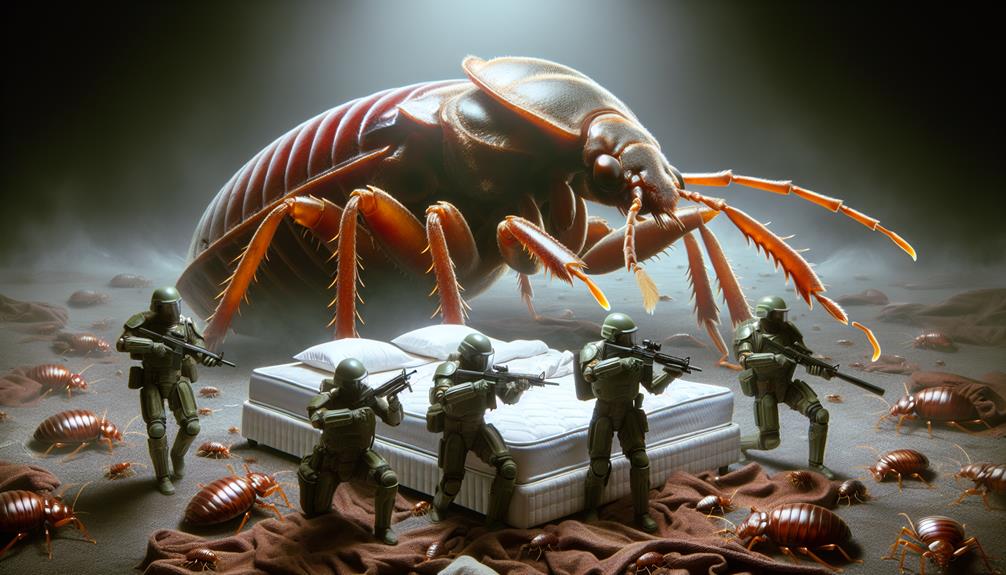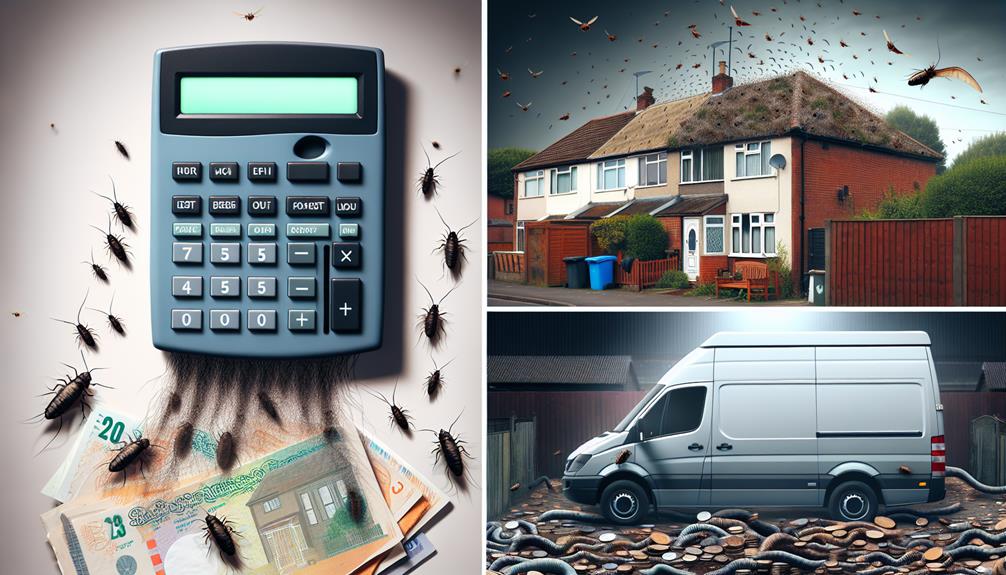Argentine Ant (Iridomyrmex humilis) stands out due to its aggressive nature and the challenges it presents in pest control. This species, native to Argentina, has spread worldwide, often eliminating other ant species in their vicinity. Understanding their behaviour and biology is crucial for effective control and management.

Aggressive Nature and Varied Diet
They are known for their aggressive behavior. They often outcompete and eliminate other ant species in the same area, asserting their dominance in the ecosystem. This aggressive nature, combined with their ability to follow food trails for long distances, makes their nests difficult to locate and control.
Their diet is varied, which contributes to their adaptability. Argentine ants prefer sweet foods, but they also consume live and dead insects, meats, cereals, and damaged fruit. This broad diet allows them to thrive in various environments.
Unique Biology and Reproduction
The biology of Argentine ants is fascinating. Worker ants, which are approximately 2mm long and light to dark brown, are produced in the spring and increase in numbers until autumn. Queen ants, which are about 4-6mm long, are usually present in more than one in each colony, unlike many other ant species.
Interestingly, They mate within their nests, a behavior that eliminates the typical swarming seen in other ant species. Winged ants, the reproductive Kings and Queens mature within three months after being produced in early spring.
Challenges in Control and Management
Controlling its presents unique challenges. The use of residual sprays or dusts can stress the colonies, causing them to split into sub-colonies that scatter to other areas in the structure, a process known as budding. This can sometimes exacerbate the problem rather than solve it.
For baiting, it’s recommended to use slow-acting gel bait. Quick-kill insecticides and baits only kill the foraging ants, preventing them from taking the bait back to feed the queen, nest workers, and brood. This makes the eradication of the entire colony difficult.
Understanding the Impact of Argentine Ants
The impact of them extends beyond their aggressive nature and the challenges they present in pest control. Their dominance in various ecosystems can lead to significant ecological changes. By eliminating other ant species, they can disrupt the balance of local ecosystems, affecting the distribution of resources and the survival of other species.
The Importance of Professional Pest Control
Given the complexities involved in controlling them, professional pest control services are often necessary. Professionals have the knowledge and experience to deal with these ants effectively. They understand the ants’ behaviour and biology, and they know how to apply control measures without causing further scattering of the colonies.
Professional pest controllers also have access to a range of products designed specifically for it control. These include the Imidasect Ant Gel, Maxforce Pushbox, and Maxforce Quantum Gel. These products are designed to attract and control their effectively, helping to manage their populations and mitigate their impact.
Preventive Measures Against Argentine Ants
Prevention is always better than cure, and this holds true for its control. Homeowners can take several steps to make their homes less attractive to these ants. These include sealing entry points, maintaining cleanliness, especially in food storage and preparation areas, and managing potential food sources like pet food and garbage.
The Future of Argentine Ant Control
Research into Argentine ant control is ongoing, with scientists continually seeking more effective ways to manage these pests. The future may bring new products and strategies that are even more effective at controlling Argentine ants. By staying informed about these developments, homeowners and pest control professionals can ensure they are using the most effective methods to control these invasive ants.
Frequently Asked Questions
1. What makes the Argentine Ant (Iridomyrmex humilis) unique compared to other ant species?
The Argentine Ant is unique due to its aggressive nature, often eliminating other ant species in their vicinity. They also have a varied diet and the ability to follow food trails for long distances, making their nests difficult to locate. Unlike many other ant species, Argentine ants mate within their nests, eliminating the typical swarming behaviour seen in other species.
2. Why is it challenging to control Argentine Ant populations?
Controlling Argentine ants can be difficult due to their behaviour and biology. The use of residual sprays or dusts can stress the colonies, causing them to split into sub-colonies that scatter to other areas in the structure, a process known as budding. Quick-kill insecticides and baits only kill the foraging ants, preventing them from taking the bait back to feed the queen, nest workers, and brood.
3. What are some effective products for controlling Argentine Ants?
Several products on the market are designed specifically for Argentine ant control. These include the Imidasect Ant Gel, Maxforce Pushbox, and Maxforce Quantum Gel. These products are designed to attract and control Argentine ants effectively, helping to manage their populations.
4. What preventive measures can homeowners take against Argentine Ants?
Homeowners can take several steps to make their homes less attractive to Argentine ants. These include sealing entry points, maintaining cleanliness, especially in food storage and preparation areas, and managing potential food sources like pet food and garbage.
5. What is the future of Argentine Ant control?
Research into Argentine ant control is ongoing, with scientists continually seeking more effective ways to manage these pests. The future may bring new products and strategies that are even more effective at controlling Argentine ants. By staying informed about these developments, homeowners and pest control professionals can ensure they are using the most effective methods to control these invasive ants.
You may also enjoy reading this article
Was This Article Helpful?
- Please provide feedback and comments to help us improve our content.
- Share your experiences and any additional tips you have for dealing with pests.
Share this Post



